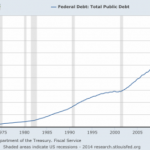Hello Investors,readers,
Interesting article I read the other day about interest rates and how the money flows towards alternative markets to achieve higher yield on the investment capital.
Foreign-exchange traders, faced with lower volatility and record-low interest rates in the U.S., Europe, the U.K. and Japan, are searching for returns as far afield as Kazakhstan and Nigeria.
Investec Asset Management Ltd., which trades currencies of nations from Colombia to Uganda, said demand for assets in so- called frontier markets increased in the past six months. The Cambridge Strategy (Asset Management) Ltd. invested in the Nigerian naira from December to February. Money manager Adrian Lee & Partners will add positions in six currencies, including Kazakhstan’s tenge and the Kenyan shilling by the end of the second quarter.
Investors are pouring cash into countries rich in commodities or with high growth rates after Europe’s debt crisis prompted them to seek the safety of the dollar and the yen in 2011. Kenya’s shilling is up 29 percent since October from a record low and Chile’s peso has advanced 6.2 percent against the dollar this year. Now, traders risk central-bank action to counter currency appreciation as nations become overwhelmed by a market that dwarfs their economies.
“We have seen an increase in demand and interest in frontier currencies and emerging market currencies versus the majors,” Thanos Papasavvas, head of currency management in London at Investec, which oversees about $88 billion, said in a March 21 phone interview. “It’s not just a search for yield that has led to the increase in demand for these currencies, it’s also about stronger and improving fundamentals and better valuations.”
Colombian Rally
Investec trades the currencies of Chile, Colombia, Kazakhstan, Kenya, Nigeria, Pakistan, Sri Lanka, Uganda, Ukraine, Vietnam and Zambia, Papasavvas said.
Colombia, where mining helped the economy expand 5.9 percent last year and the benchmark interest rate is 5.25 percent, saw its peso strengthen more than 10 percent this year, tied with Poland’s zloty for the most among more than 170 currencies tracked by Bloomberg.
Its government said last month it will keep at least $1 billion of dividends from state-run oil producer Ecopetrol SA abroad to avoid adding to gains in the peso. It doesn’t rule out further steps to curb currency strength, Finance Minister Juan Carlos Echeverry told reporters in Bogota March 20.
‘Destabilizing’ Flows
Countries from Brazil to Switzerland have already taken steps to weaken exchange rates to protect exports and domestic industry. Brazil, Latin America’s largest economy, has sold dollars and broadened taxes on foreign loans and bonds issued outside the nation as part of measures to shield the real from foreign inflows. The Swiss National Bank introduced a cap of 1.20 francs per euro in September to limit its strength.
“Short-term capital flows can be destabilizing and I wouldn’t be surprised to see more countries fight that,” Dale Thomas, head of currency management in London at Insight Investment Management Ltd., which oversees about $267 billion in assets, said in a telephone interview on March 19. “You can get an asset bubble when money flows in and when money flows out it collapses.”
Investment is being channeled into alternative markets as profits from the largest currencies prove harder to come by. Deutsche Bank AG’s gauge of foreign-exchange returns, which includes the most-actively traded currencies, slipped 0.3 percent this year after a 3.8 percent drop in 2011, the worst performance in two decades. The currency-returns index had climbed 47 percent over seven years ended Dec. 30, 2005.
Falling Volatility
The JPMorgan G7 Volatility Index (JPMVXYG7) has tumbled to 10.14 percent from 15.46 percent in September, reducing money managers’ ability to exploit price moves. The 3.5-cent difference between the euro’s high this month of $1.3357 and its low at $1.3004 is the narrowest trading band since July 2007. The shared currency traded at $1.3228 at 11:59 a.m. in New York today.
Optimism that Europe’s debt crisis is stabilizing after the European Central Bank boosted bank liquidity with about 1 trillion euros ($1.3 trillion) of three-year loans and private investors forgave more than 100 billion euros of Greek debt has boosted demand for higher-yielding assets such as stocks. The Stoxx Europe 600 Index (SXXP) has climbed 8.6 percent this year.
Low rates, austerity and stimulus measures in the U.S., the U.K., Europe and Japan — known as the G-4 — have strategists forecasting little change.
The euro will fall to $1.30 by year-end, the median estimate of more than 50 strategists surveyed by Bloomberg shows. The yen will trade at 83 per dollar by year-end from 82.65 today and Britain’s pound will be at $1.57, from $1.5869, separate surveys show.
Emerging-Market Volumes
Futures-trading data from CME Group Inc., the world’s largest futures exchange, shows that volumes in emerging-market currencies jumped 42 percent in 2011 from the prior year, while those in the yen, euro and Swiss franc stagnated.
“There clearly has been more activity in the emerging markets — there are greater opportunities for investors,” said Ed Baker, executive chairman of London-based The Cambridge Strategy, which specializes in emerging-market currencies and equities and has $850 million under management. “No doubt it has been harder with the G-4 to make money,” he said in a March 20 telephone interview.
Baker said his company has profited in Nigeria’s naira and the United Arab Emirates dirham, while Serbia’s dinar was the best-performing currency in 2011 in its $65 million Apollo strategy fund, which had gross returns of 15.9 percent on an annualized basis since it was set up in May 2009.
Trade safe
Erik
Source: Bloomberg – Emma Charlton and Paul Dobson on March 26, 2012





